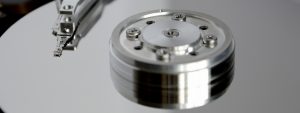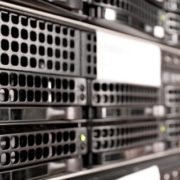How to Avoid Data Loss and Protect Your Company and Customers
Whenever anyone hears a news report about some company’s massive data loss, the instinctive reaction is a sigh of relief that this happened to someone else. The sad truth is that everyone needs to know how to Avoid Data Loss.
Most data loss can be avoided. It would take far more time, effort, and money to recover from a data loss than to prevent it from happening. There are several common causes of data loss.
Files Deleted Accidentally
Probably most people have discovered they didn’t have a current backup after accidentally deleting an important file. It’s so common that this is not always thought of as data loss, but it can serve as a wake-up call that better backup procedures are needed.
Hard Drive Failures

A hard drive can fail because of:
- Wearing out, overheating, exposure to magnetic fields or power surges
- Being dropped
- A failure in the internal file system
- Human error, such as improper formatting or tampering
- A single catastrophic event such as hot computer temperatures or repeated hard reboots
Malware and Virus Infections
A survey of IT specialists found that 35% of their companies had lost data because of a malware infection. Email-based attacks and phishing are the most common means of entry. Data can be lost, stolen, or encrypted. One computer or the entire network can be infiltrated.
Ransomware attacks are increasing. A hacker infiltrates the system with a virus, steals or encrypts the data, and demands a ransom. Master hackers now sell ransomware software to others as a business opportunity. One stolen health record sells for several hundred dollars on the black market.
Tips on Protecting Your Data
Data Storage
- Avoid Data Loss by storing data in different locations. Create two or more partitions if the system has only one hard disk
- Store data on an external hard drive
Control Access to Data
- A significant amount of data is stolen by employees
- Stringent security precautions and procedures will protect data by restricting access
Backups
- Backup data on a regular schedule
- Ensure the backup is not in the same physical location. Backing up to the cloud is the ideal solution for most people
- If backups are made to an external hard drive, do not leave it in the same location as the computer(s) where it would be vulnerable to fire or other catastrophes
- Adopt proper data protection strategies and workflow processes.
Antivirus Software and Firewalls
- Use high-quality antivirus software and keep it up to date
- Use both hardware and software firewalls
- Professional IT support will monitor systems 24/7, use more effective antivirus software that is available over-the-counter, and ensure backups are always current and protected.
Power Failures and Power Surges
- Unexpected shutdowns can crash computers and destroy data
- Surge protectors with battery backups allow the user to save files and shut down their system normally.
Current and protected backups are the primary way to prevent data loss. An online backup service will be worth its weight in gold if the unexpected happens and they have preserved the only copy of your most critical data. Protecting the hard drive and other hardware is also important, but hardware can easily be replaced. Confidential and proprietary data are irreplaceable.
- About the Author
- Latest Posts
Marlene works as editor in chief for Biteno GmbH and writes about all matters related to Internet stories.



